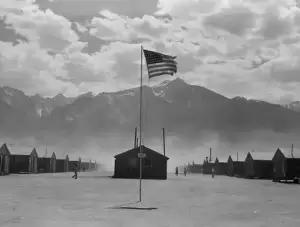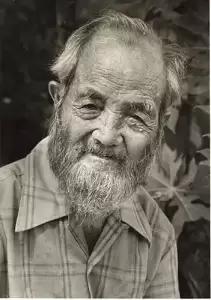Resident Aliens

Some enemies of the U.S. were not easy to identify during wartime. After the attack on Pearl Harbor in 1941, people of Japanese ancestry were suspect throughout the United States. Henry T. Kamiya, who had succeeded Jo Sakai as leader of the Yamato Colony near Boca Raton, was visiting a daughter in California when his country attacked Pearl Harbor. Kamiya was detained at the Manzanar camp with other Japanese for the war’s duration. When he returned to Yamato in 1945, Kamiya found the federal government had taken his land, although not because he was Japanese.
Although Kamiya was absent, he and other Japanese were among about 50 owners of property west of the railroad who were notified on May 16, 1942, to immediately vacate their land for conversion to the Boca Raton Army Air Field. The Second War Purposes Act allowed this “emergency condemnation” without an appraisal and before compensation was determined.
After Pearl Harbor, the FBI and police in Palm Beach County arrested and monitored many non-citizens, or aliens, from Germany or Japan, but they did not relocate them to camps as in California. The aliens needed special permission to withdraw money from their bank accounts.

Only a few Japanese remained at Yamato by that time. George Morikami had just lost his crop in a storm, and the bank refused him a loan to start over. He was living in Delray, where a guard lived in his home, and his movements were restricted.
The Kobayashi family of Yamato was treated similarly. FBI agents searched their home and confiscated a shotgun, Japanese books, and a toy they believed could send a signal to a German submarine. Two Coast Guardsmen moved in with the Kobayashis for a few months, and escorted them on errands away from home.
Their occupations as farmers evidently helped the Yamato residents, as agricultural production was vital to the war effort. A retired agricultural extension agent later said that the extension bureau often assigned migrant Bahamian laborers to assist the Japanese on their farms. But the Japanese were not allowed to leave their home county. Although Hideo Kobayasi lived at Yamato, he had a landscaping business in Ft. Lauderdale, in Broward County. Kobayasi needed a permit from the Federal Bureau of Investigation (FBI) to go to work. After their land was taken for the airfield six months later, the family moved permanently to Ft. Lauderdale.

